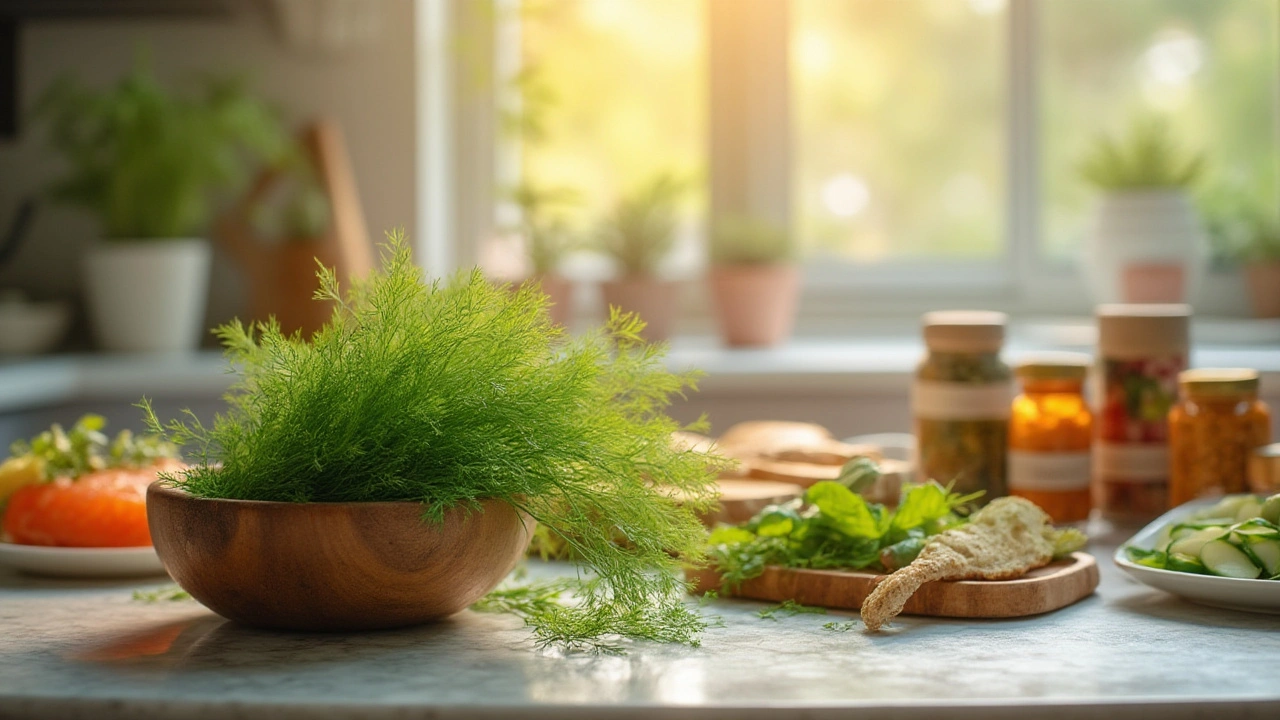Dill Benefits – Why This Fresh Herb Is Good for You
If you’ve ever tossed dill onto a fish or into a salad, you probably noticed its bright taste. Beyond flavor, dill packs a range of health perks that many people overlook. In this guide we’ll break down the most useful benefits, point out a few safety notes, and show you easy ways to use dill every day.
Key Health Benefits of Dill
1. Helps digestion. Dill contains compounds that stimulate the release of digestive juices. That can make food move more smoothly through your stomach and lessen bloating after a big meal.
2. Supports heart health. The herb is a source of potassium and folate, both of which help keep blood pressure in a healthy range. Some studies also link the antioxidant flavonoids in dill to reduced inflammation in blood vessels.
3. Boosts immunity. Vitamins A and C are present in small amounts, and they work together to keep white‑blood‑cell function strong. Adding dill to a soup or smoothie gives a mild vitamin boost without a strong taste.
4. May lower blood sugar spikes. Preliminary research suggests that dill seed extracts can slow carbohydrate absorption, which helps keep blood sugar levels steadier after meals.
5. Easy source of antioxidants. The herb’s essential oils, especially carvone and limonene, fight free radicals. Regular intake of antioxidants is linked to lower risk of chronic diseases.
Most people can enjoy dill without issue, but a few cautions are worth noting. If you’re taking blood‑thinners, high amounts of dill seed might increase bleeding risk. Pregnant women should stick to culinary amounts rather than large supplement doses. As always, talk to a healthcare provider if you have a specific condition.
Practical Ways to Add Dill to Your Meals
Getting the benefits doesn’t require a fancy recipe. Here are quick ideas you can try right now:
Mix into dressings. Blend a tablespoon of fresh dill with olive oil, lemon juice, and a pinch of salt for a simple salad topping.
Sprinkle on roasted veggies. Toss carrots, potatoes, or zucchini with oil, roast, then finish with chopped dill for a fresh pop.
Stir into soups and stews. Add dill during the last five minutes of cooking so the flavor stays bright.
Make a dill yogurt dip. Combine plain Greek yogurt, minced dill, garlic, and a dash of pepper. Use it for raw veggies or as a spread on sandwiches.
Flavor fish or chicken. Rub fillets with a mixture of dill, lemon zest, and a little mustard before baking.
Even a small handful each day can add up to noticeable benefits. If fresh dill isn’t available, dried dill works fine—just use about one‑third the amount because the flavor is more concentrated.
Bottom line: Dill is a low‑calorie herb that brings digestion aid, heart support, and antioxidant power to the table. By sprinkling it on a few dishes each week, you get both flavor and health wins without extra effort.
Dill Supplement Benefits: Natural Health Booster and Simple Wellness Secret
Curious about dill? Discover how this humble herb works as a dietary supplement, supporting digestion, heart health, immunity, and more—without any fuss or fillers.
